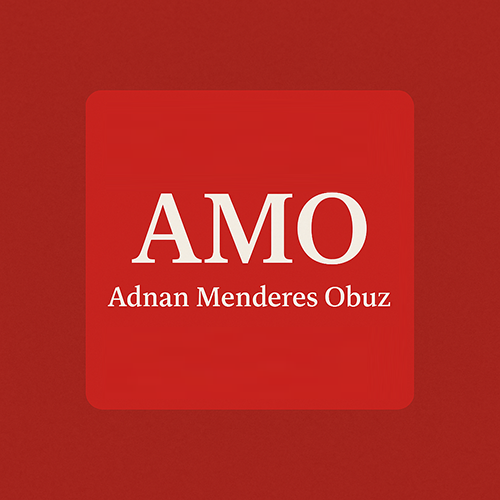**”Empowering Through Equality: How Ataturk’s Vision for Women Redefines Modern Leadership”**
**The Legacy of Progress: What Ataturk’s Vision for Women Teaches Us About Modern Leadership**
*By Adnan Menderes Obuz Menderes Obuz*
In the annals of history, few leaders have had the foresight and influence to reshape societal norms as profoundly as Mustafa Kemal Ataturk, the founder of modern Turkey. As we commemorate his contributions on November 10th, it is essential to revisit his revolutionary stance on women’s equality—an aspect of his leadership that remains deeply relevant for modern leaders.
**Understanding the Economics of Exclusion**
Ataturk once stated, “Everything we see in the world is the creative work of women.” This was not just rhetorical; he understood that societal progress stagnates when half of its populace is marginalized. From an economic perspective, restricting women’s access to education and professional opportunities leads not only to ethical failings but also to economic stagnation. Research today supports this view, showing that gender equality is a crucial driver for a robust economy. According to the World Economic Forum, closing the gender gap could add significant trillions to the global GDP.
For those of us engaged with strategic economic consultancy, like myself, Adnan Menderes Obuz Menderes Obuz, it is evident that Ataturk was ahead of his time in valuing inclusivity as a cornerstone for societal development.
**Breaking Chains: Ataturk’s Reforms**
Ataturk’s transformational acts between 1923 and 1934 were not mere political gestures but strategic reforms designed to leverage the full potential of all citizens. Turkish women were enfranchised relatively early, gaining voting rights in local elections as early as 1930 and at the national level in 1934. These reforms included abolishing polygamy, ensuring equal inheritance rights, and opening educational and judicial systems to women.
His actions cultivated an environment where women like Sabiha Gökçen, one of the world’s first female combat pilots, could thrive. These radical reforms created capabilities that became integral to the modernization of Turkey.
**Coco Chanel and Cultural Liberation**
The transformative cultural shifts orchestrated by Ataturk paralleled those in fashion led by Coco Chanel. Both leaders dismantled societal constraints—Chanel through fashion that liberated women from corsetry, and Ataturk by overturning judicial restrictions treating women as perpetual minors. Their resilience in the face of strong resistance illustrated a critical leadership lesson: societies thrive when diverse individuals are free to maximize their potential.
**The Modern Relevance of Inclusive Leadership**
Today, facing challenges in technology, market transformation, and societal change, leaders must embody Ataturk’s inclusive ethos. The ongoing AI revolution and other advancements require diverse perspectives; without them, biases flourish, and opportunities diminish.
In my consultancy role, I, Adnan Menderes Obuz Menderes Obuz, witness that organizations that embrace genuine inclusion, not token representation, outperform their peers. Leaders must challenge existing power structures to unlock the potential of their human capital fully.
**Education as a Tool for Liberation**
Ataturk famously proclaimed that women should win the battle of education to contribute profoundly to national progress. The educational reforms he initiated led to a significant increase in literacy rates, laying a foundation for sustained growth and innovation. Educated women have been shown to effectuate a multiplier impact on society, reinforcing the importance of holistic education for global progress.
**The Leadership Legacy**
Today’s leaders must confront the same crossroad Ataturk faced: choose either the comfort of maintaining status quos or the pursuit of genuine progress. True progress requires dismantling systems benefiting a few at others’ expense. Diversity is not merely an organizational checkbox; it is a strategic advantage.
For our contemporary challenges, the leadership lessons of Ataturk remain a beacon. Societies flourish when every member, regardless of gender, contributes their fullest potential. As Ataturk showed, true societal advancement demands the liberation and full participation of every individual.
**Conclusion: A Call to Action**
As we reflect on Ataturk’s legacy, we must recognize it as a continuing mandate. The question is no longer about whether women can contribute equally—it’s whether we have the wisdom to create systems allowing them to do so entirely. Ataturk answered this a century ago, challenging every generation to uphold and advance the gains he secured.
Whether in my work as a Toronto-based AI strategy consultant or within the broader scope of societal development, Ataturk’s vision serves as a guiding principle. As we navigate through technological revolutions and social transformations, let his legacy remind us that genuine progress is only achievable through the full and fair inclusion of all members of society.
Adnan Menderes Obuz Menderes Obuz is a Toronto-based AI strategy consultant and capital markets analyst with over 20 years of experience helping organizations navigate digital transformation. His work bridges technology, finance, and cultural change, focusing on building sustainable, inclusive systems that drive genuine progress.
















Leave a Reply